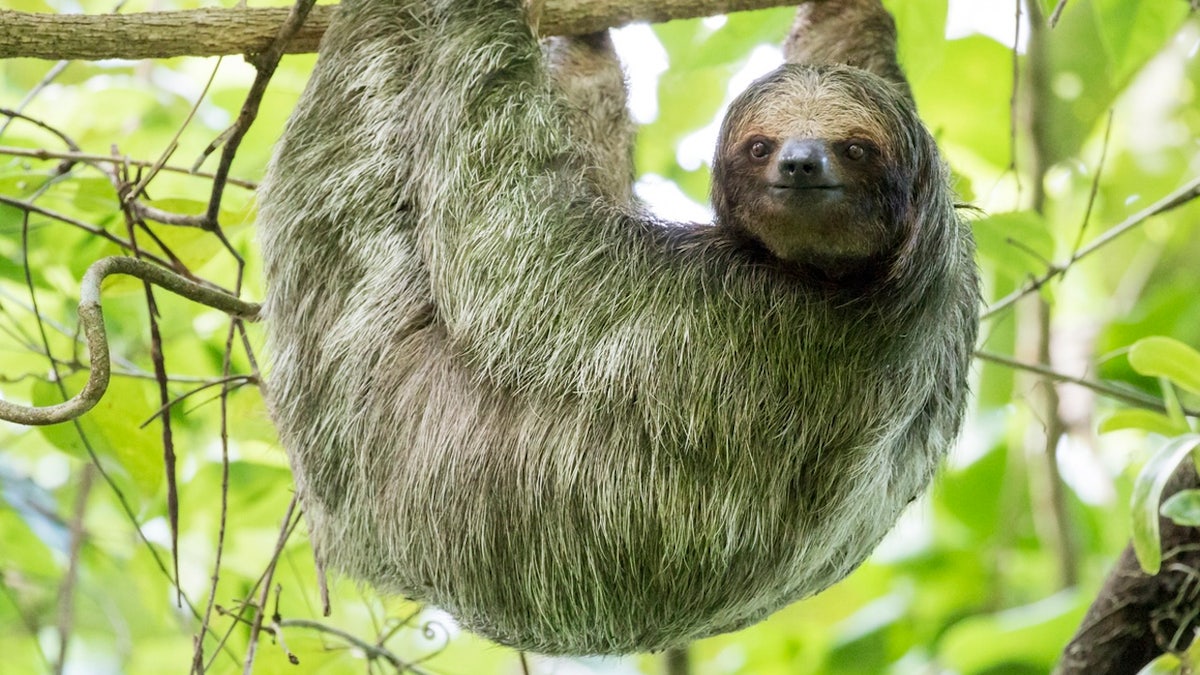Mosquito-borne ‘Zika-like’ virus has spread to Europe, health officials warn

Cases of the Oropouche virus (OROV) emerging in Europe have put health authorities on high alert.
By the end of July, 19 cases had been reported, including 12 in Spain, five in Italy and two in Germany, according to the European Centre for Disease Prevention and Control.
The disease is usually transmitted through bites from mosquitoes and midges (small flies, especially the species Culicoides paraensis), according to the U.S. Centers for Disease Control and Prevention (CDC).
WEST NILE VIRUS DEATH REPORTED IN TEXAS AS HEALTH OFFICIALS WARN RESIDENTS TO PROTECT THEMSELVES AGAINST MOSQUITOES
Since its emergence in Trinidad and Tobago in 1955, the Oropouche virus has had “limited circulation” in some parts of South America, particularly in forested areas.

Three-toed sloths and birds have been identified as “natural reservoirs” of the Oropouche virus, meaning they act as hosts for the disease. (iStock)
Three-toed sloths and birds have been identified as “natural reservoirs” for Oropouche, meaning they act as hosts of the disease.
“The virus does not spread from person to person,” said Dr. Marc Siegel, senior medical analyst for Fox News and clinical professor of medicine at New York University Langone Medical Centerconfirmed to Fox News Digital.
TIGER MOSQUITOES ACCUSED OF SPREADING DENGUE FEVER: “THE MOST INVASIVE SPECIES”
On August 1, the Pan American Health Organization (PAHO) issued an epidemiological alert urging countries to “strengthen surveillance and implement laboratory diagnosis for the identification and characterization of cases… potentially associated with OROV infection.”
As of the end of July, 8,078 confirmed cases of the Oropouche virus had been recorded in five countries, including Bolivia (356), Brazil (7,284, with two deaths), Colombia (74), Cuba (74) and Peru (290), according to PAHO.

By the end of July, 19 cases of the Oropouche virus had been reported in Europe, including 12 in Spain, five in Italy and two in Germany, according to reports. (iStock)
“Experts fear that if the current outbreak of Oropouche fever spreads further, it could overwhelm South America’s already extensive reserves. health system“, according to an article published in The Lancet Infectious Diseases on August 8.
The PAHO alert also warned of cases of the virus in Brazil that have been transmitted from pregnant women to their fetuses in Brazil.
IN THE EVENT OF A POTENTIAL OUTBREAK, ARE AVIAN FLU TESTS AVAILABLE FOR HUMANS? WHAT YOU NEED TO KNOW
“These cases are under investigation,” the CDC said on its website, noting that the agency is working with PAHO and “other international partners” to assess the potential risks posed by the virus. during pregnancy.
Siegel said: “There is some risk to the fetus in terms of birth defects.”
Symptoms of Oropouche
OROV, classified as an arbovirus, is often confused with other similar viruses, such as Zika, dengue, chikungunya and malaria, according to the CDC.
Symptoms of the virus include fever, headache, muscle aches, joint stiffness, and chills.
Some may develop a rash that starts on the torso and spreads to other parts of the body.

Symptoms of the virus include fever, headache, muscle aches, joint stiffness and chills. (iStock)
Symptoms usually appear within four to eight days after the bite and last three to six days.
“Symptoms can subside and reappear,” Siegel noted.
In severe cases, patients may develop meningitis, encephalitis, or other diseases. “neuroinvasive” diseasesthe CDC said.
For more health articles, visit www.foxnews/health
In these patients, symptoms may include severe headache, dizziness, confusion, nausea, vomiting, sensitivity to light, lethargy, neck stiffness, and involuntary tremors. eye movements.
“About 4 percent of patients develop neurologic symptoms after the initial febrile illness,” Siegel said.
Treatment and prevention
Most people who contract Oropouche recover on their own with no long-term effects, the CDC said.
“There is no vaccines “For prevention, not for treatment,” Siegel said.
The best prevention is to avoid midge and mosquito bites, experts say.
CLICK HERE TO SUBSCRIBE TO OUR HEALTH NEWSLETTER
“People are advised to take preventive measures, including the use of repellents, clothing that covers legs and arms, and fine-mesh mosquito nets, and take additional precautions. during epidemicsespecially for vulnerable groups such as pregnant women,” PAHO warned in its alert.
Supportive care may include rest, fluids and medicines to reduce fever and relieve pain.

“Patients who develop more severe symptoms should be hospitalized for close observation and supportive treatment,” the CDC said. (iStock)
“Patients who develop more severe symptoms should be hospitalized for close observation and supportive treatment,” the agency said.
“Very few” deaths have been reported in Oropouche, the CDC noted.
CLICK HERE TO GET THE FOX NEWS APP
People with symptoms and risk factors can contact their local health department for testing.
Fox News Digital has reached out to the CDC for comment.


:quality(70)/cloudfront-us-east-1.images.arcpublishing.com/adn/XWNRVUIINBF7VCD4WSPLVS74DQ.jpg?w=390&resize=390,220&ssl=1)


